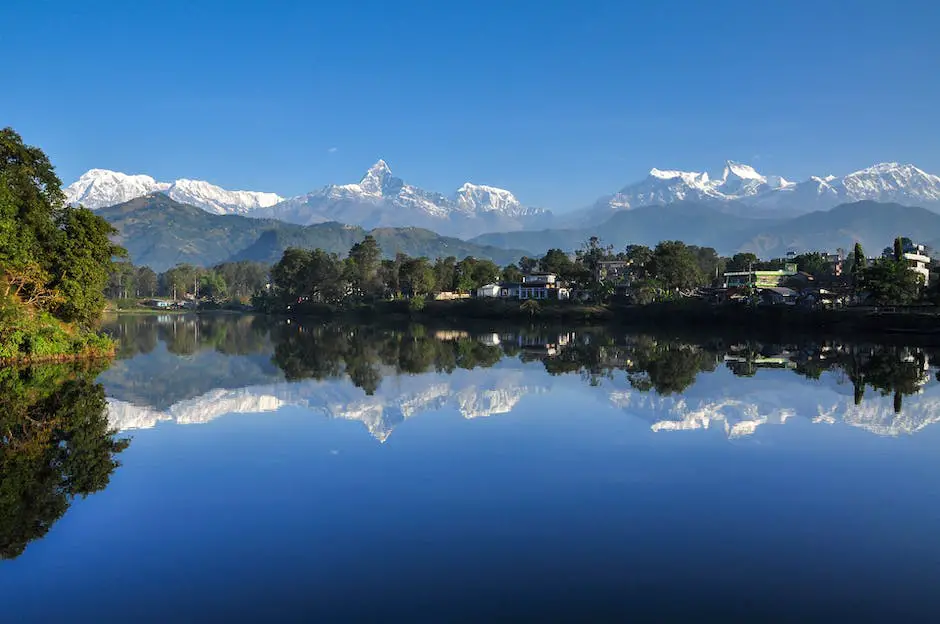
Imagine you’re about to embark on an adventure to the serene city of Pokhara, Nepal, nestled amidst the majestic Himalayas. The air is crisp, the scenery is breathtaking, and the vibe is as tranquil as the placid waters of Phewa Lake. As a seasoned traveler, I’ve learned that packing smart is the key to a hassle-free and enjoyable trip. So, let’s dive into the essentials that will make your journey to Pokhara as smooth as the glide of a paraglider over its stunning landscape.
1. Weather-Appropriate Clothing
First things first, let’s talk about what you’re going to wear. Pokhara’s weather can be quite unpredictable, swinging from sunny skies to sudden showers. Layering is your best friend here. Pack lightweight, breathable clothing that can be easily layered. A waterproof jacket is a must, as rain can come out of nowhere, especially if you’re visiting during the monsoon season. Don’t forget a good pair of hiking boots if you plan on exploring the Annapurna range – they’re as essential as a paddle for kayaking on Phewa Lake.
2. Health and Hygiene Essentials
Health is wealth, especially when traveling. Bring a small first-aid kit with basics like band-aids, antiseptic wipes, and any personal medication. In Pokhara, you’ll be in close contact with nature, which means bugs. A good insect repellent will save you from itchy souvenirs. Also, hand sanitizer and toilet paper should be on your list, as they might not always be available in remote areas or during treks.
3. Power Bank and Adapters
Let’s face it, we’re all a bit gadget-dependent. A power bank ensures your phone stays charged while capturing the beauty of Pokhara. Remember, the electricity supply can be erratic here. Also, Nepal has its own plug type, so bring a universal travel adapter. You wouldn’t want to miss out on capturing the sunrise at Sarangkot because your camera battery died, right?
4. Sun Protection
The sun can be fierce at high altitudes, and Pokhara is no exception. Arm yourself with sunglasses, sunscreen, and a wide-brimmed hat. Trust me, sunburn can quickly turn your dream trip into a painful ordeal. Plus, you’ll want to enjoy boating on Phewa Lake without squinting the whole time.
5. Water Purification
Staying hydrated is crucial, but it’s equally important to ensure the water you’re drinking is safe. A water purification bottle or tablets can be a lifesaver. This way, you can refill from natural sources if needed, without worrying about waterborne illnesses.
6. Snacks and Nutrition
While Pokhara offers a variety of dining options, having some energy bars or trail mix can keep you fueled during activities. Whether you’re paragliding, trekking, or just exploring the city, a quick snack can be a boon when hunger strikes unexpectedly.
7. Navigation Tools
Even in the age of smartphones, having a physical map or a compass can be invaluable, especially if you’re trekking in areas with limited cell service. Plus, it adds an element of old-school adventure to your trip, doesn’t it?
8. A Good Book or Journal
There’s something about Pokhara’s serene environment that invites reflection. A good book or a journal to pen down your thoughts can be wonderful companions for those peaceful moments by the lake or cozy evenings in a café.
9. A Sturdy Backpack
A comfortable, durable backpack is your trusty sidekick on this journey. Whether you’re carrying essentials for a day trip or packing for an overnight trek, a good backpack will keep your hands free and your belongings secure.
10. Cultural Sensitivity
Last but not least, pack an open mind and respect for the local culture. Pokhara is a melting pot of ethnicities and traditions. Dress modestly, especially when visiting temples or religious sites. A little bit of cultural awareness goes a long way in creating meaningful connections with the locals.
FAQs
- What’s the best time to visit Pokhara?
The best time to visit Pokhara is during the spring (March to May) and autumn (September to November) when the weather is pleasant, and the skies are clear, offering stunning views of the Himalayas.
- Do I need any vaccinations before traveling to Pokhara?
It’s always wise to consult with your healthcare provider before traveling. Generally, vaccinations for Hepatitis A, Typhoid, and Tetanus are recommended for Nepal.
- Is it safe to travel alone in Pokhara?
Pokhara is considered safe for solo travelers. However, always take standard precautions like avoiding isolated areas at night and keeping your belongings secure.
Conclusion
In conclusion, packing for Pokhara is all about being prepared for adventure while respecting the local culture. From weather-appropriate clothing to health essentials and cultural sensitivity, these ten items will ensure your trip is nothing short of amazing. Remember, it’s not just about the destination but also how comfortably and mindfully you get there. So pack light, pack smart, and get ready to immerse yourself in the beauty and tranquility of Pokhara. Safe travels!
By following this guide, you’re not just gearing up for a trip; you’re preparing for an experience that will resonate with the soul of a true traveler. And who knows, maybe you’ll find yourself featured in the next snippet of ‘Traveling Mahilyow’ stories, sharing tales of your unforgettable journey to the heart of Nepal.